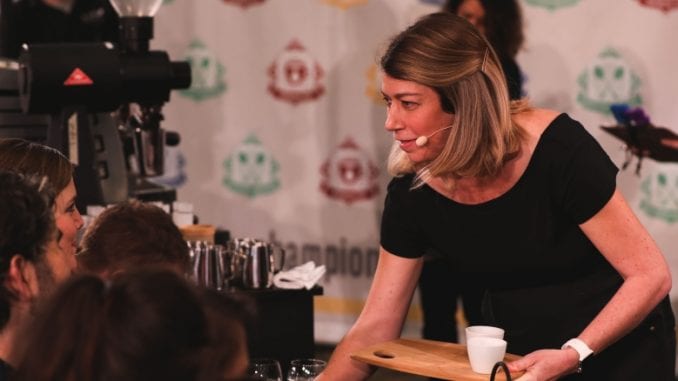
With a routine focused on family and the future of coffee, Andrea Allen placed fifth at the 2018 United States Barista Championship—she opens up about the experience with us.
BY CHRIS RYAN
BARISTA MAGAZINE ONLINE
Photos courtesy of Jake Olson
Andrea Allen spoke from the heart in her presentation at the the 2018 United States Barista Championship. Inspired by the precarious outlook for coffee production, Andrea developed a routine paralleling the future of her business, family, and community with the future of specialty coffee. Though the emotional routine brought some in the USBC audience to tears, Andrea placed fifth in the competition—a disappointing result for the two-time USBC runner-up, who says she made key mistakes in her finals performance. Still, it was a learning experience for Andrea; here, she talks to us about her approach to this year’s competition, what she learned from it, and her thoughts on whether she’ll compete again next year.
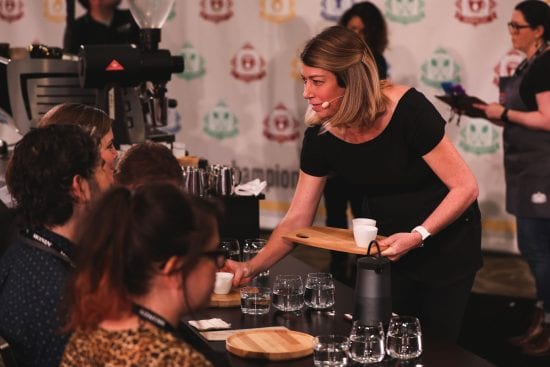
Chris Ryan: Was this your fourth USBC? How do you approach competition these days, and how do you make time for it in your schedule?
Andrea Allen: Yes, this was my fourth year competing at USBC! It’s interesting because my approach to competition gets more intense and more focused the more I compete. The competition is so tough, and the other competitors are so good, that I have to really make sure I’m absolutely as prepared as possible in order to have my best possible performance. This year I practiced essentially every weekend for four months leading up to USBC. I also had at least two days a week that I practiced half-days, and I did something for competition every day, whether it was script editing/memorizing, pour practice, dialing in, etc. It took about six months for me to write my script.
Time is always hard. Fortunately at work my team is flexible and helps me with things, and also puts up with me having to move meetings and spend less time with them for practice. My husband, Jon, spent his weekends helping me taste, giving me feedback, and watching (our daughter) River so that I could have time to focus and prepare. Without him, I wouldn’t be able to compete.
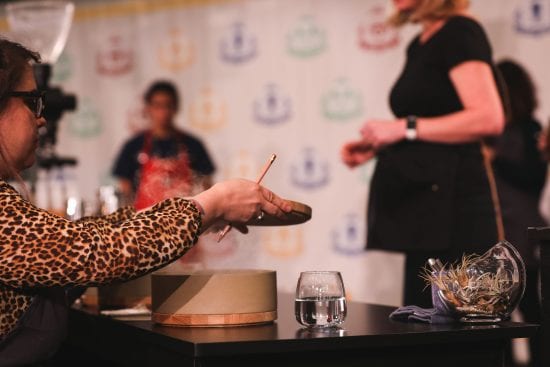
CR: Your routine had a focus on family this year. Can you explain your inspiration for the theme, and how you carried it out on stage?
AA: This year’s routine started when Jon called me from Nariño (Colombia) last summer and told me he’d found a coffee for me for competition this year. This wasn’t the coffee I ended up using, although both coffees have a similar story. Essentially, an experienced producer has bought fully into showing her community how producing specialty coffee could potentially provide a viable way for her community to become a place where young people could stay, work, and be successful. Her entire life seems to be devoted to the people around her, and I pretty quickly bought into the idea of legacy and how what we do affects those around us and what kind of impression we want to leave behind us.
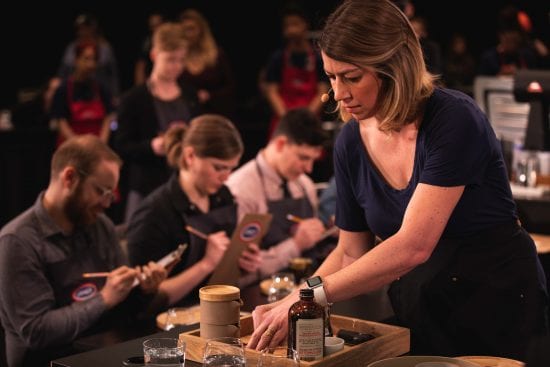
I love the coffee community, my work, and my team, and these are things I want to see continue. There is a real threat to this community that I feel is not being discussed as much as it should be. The ability of specialty producers across the world to be able to produce high-quality coffee in a manner that supports themselves and their families is a very difficult thing. Producers’ incomes have hardly changed in the last 40 years. The commodity price is drastically lower than it was 40 years ago. If something doesn’t change, then the world of coffee as we know and love it absolutely will change. Everyone wants to leave something great, something positive, behind. I would love to leave Onyx to my daughters someday. However, without a change in how specialty is buying coffee, then there’s a real doubt in my mind whether there will be something to give to them.
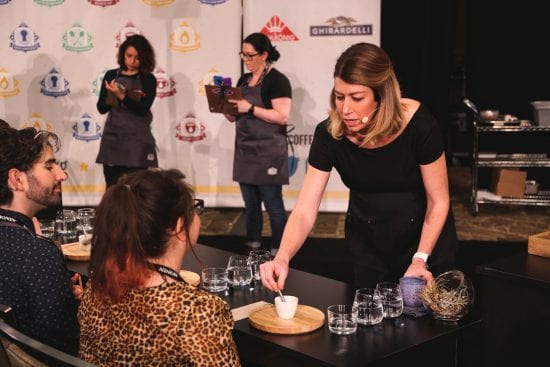
I wanted to do everything possible to communicate this issue, this urgency, and the far-reaching consequences of the decisions that the specialty industry is making. My approach is always to make things as close to home as possible, because there’s a fine line between accusing others of things and asking them to consider what they are doing in a way that is kind. I always want to operate out of a place of vulnerability, admission of imperfection, kindness, and love, because I firmly believe that’s the best way to get people to listen to what I’m saying. I don’t know the answers to many problems in our industry, but I feel that if we collectively discuss them, then change will certainly come out of that.
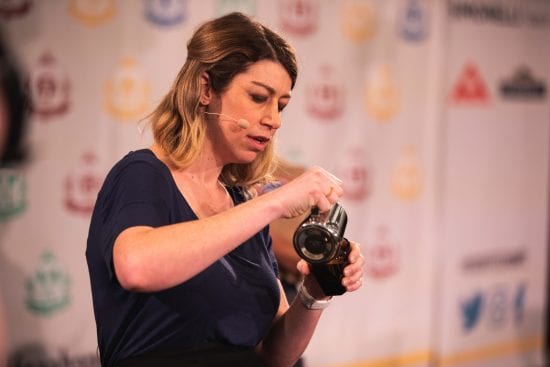
CR: Even if the result wasn’t what you were hoping for, how was your experience performing this routine? How did you feel it went, and did you think like you communicated what you intended to?
AA: My experience with performing the routine was really great. I learned new skills for this routine, expanded my ideas about what a presentation could look and feel like, and I felt really successful at the way the message was communicated. I’ve had an overwhelming response to my presentation, which has been so great. I know I was able to really connect and communicate with my peers, which was definitely my desire. I think time will tell whether people will begin to discuss this issue, but I definitely feel like I accomplished a lot. I do feel disappointed that I made a couple of big mistakes during my presentation, but that’s just part of the way competition works.
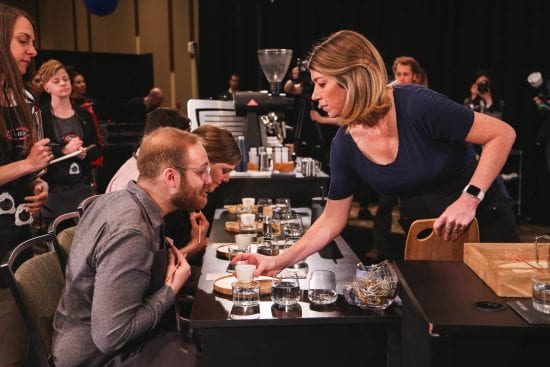
CR: Was there anything specific you learned from your experience with competition this year?
AA: I feel like I learn this every year, but the people are what makes competition so fun. I love the community of competitors, coaches, and volunteers that work backstage to make the competitions and the presentations possible. Even though many of them are my direct competitors, there’s a real culture of encouragement and support that exists back there that I absolutely love.
CR: Do you have a sense yet of whether you’ll compete again in USBC next year?
AA: At this time, I don’t. Ultimately I would love to be able to represent my community on the world stage someday. For me personally, I put my heart and soul into every presentation. This year was particularly hard in that way, and I’m unsure whether I want to try to do it again right now.

